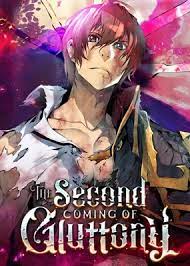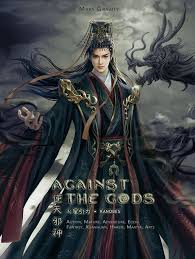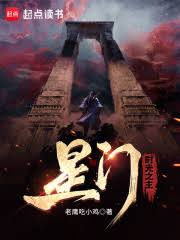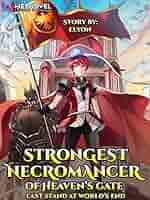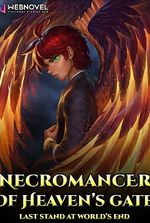The Story in 3 Sentences
Seol Jihu, a broken gambling addict drowning in regret, is transported to the brutal parallel world of Paradise—given a second chance, not as a hero, but as the Executor of Gluttony.
Forced to battle monstrous enemies and his own self-destructive impulses, he confronts his past through pain, relapse, and slow, earned growth.
His journey from self-loathing failure to redeemed warrior is not one of effortless power, but of suffering, sacrifice, and the fragile strength of a man learning to value himself.
Why It Stands Out
1. Redemption That Hurts to Earn
This isn’t a power fantasy where flaws vanish with a level-up. Seol Jihu’s growth is painful, nonlinear, and real. The Seven Deadly Sins system ties power to personal weaknesses—his Gluttony isn’t about food, but an insatiable hunger for more: strength, validation, escape. His “cheat” ability—seeing value in the worthless—is a metaphor for addiction, and using it risks spiraling into self-destruction. Fans praise how every victory is shadowed by cost, making his progress feel earned, not gifted.
2. A World That Punishes Weakness—Permanently
Paradise doesn’t forgive. One mistake can cost a limb, a relationship, or a life. There are no resets. Allies like Jang Maldong operate in moral gray zones, using brutal methods to survive. The leveling system doesn’t just demand combat skill—it demands psychological growth. This isn’t just survival—it’s evolution under fire. Readers love how stakes feel real, consequences stick, and no one is safe—not even the protagonist.
3. Characters Who Are Broken, Not Broken For Romance
Seol isn’t likable at first—his impulsiveness, gambling relapses, and emotional outbursts frustrate allies and readers alike. He doesn’t become strong by being “chosen.” He becomes strong by choosing to keep going. Seo Yuhui isn’t a healing waifu—she’s a trauma survivor in her own right, whose bond with Seol grows through shared pain, not tropes. Villains like Gula mirror his worst fears, making their clashes not just physical, but existential.
Characters That Leave a Mark
There’s Seol Jihu — a man who starts as a gambling addict consumed by shame, whose power as the Executor of Gluttony forces him to confront his hunger for more, growing not through strength, but through suffering and self-awareness.
You’ll meet Seo Yuhui, not just a healer, but a woman shaped by trauma, whose medical abilities come at physical cost, and whose quiet strength becomes a mirror and anchor for Seol’s healing.
Then there’s the Parasite Queen, not just a final boss, but the embodiment of what Seol could become—consumed by endless hunger, spreading corruption through temptation, not force.
And Gula? He’s the one who represents the unchecked sin Seol fights daily, making their final confrontation a battle of philosophy as much as power.
The Flaws Fans Debate
Harem elements feel underdeveloped—romantic subplots are present but often sidelined, leaving some arcs feeling tacked-on.
Pacing slows in political arcs—mid-story faction conflicts sometimes interrupt the emotional core of Seol’s personal journey.
Translation quality varies—emotional nuance, especially in therapy-like scenes, can be lost in English versions. Ending is ambiguous—some readers find it cathartic and fitting; others feel it lacks closure, especially for key relationships.
Must-Experience Arcs
Ch.1–100: Rock Bottom – Seol’s arrival, first failures, and struggle with addiction in Paradise—raw, painful, and essential.
Ch.150–250: Seven Virtues Trials – Brutal power-up sequences where each upgrade demands psychological sacrifice—growth with real cost.
Ch.300–400: Parasite War – Full-scale conflict where Seol’s strength and will are tested against overwhelming corruption.
Ch.450+: The Final Banquet – Emotional and philosophical climax, where Seol faces the truth of Gluttony and what redemption truly means.
Killer Quotes
“What matters isn’t how strong you become, but that you never forget who you were.”
“The system doesn’t reward heroes — it rewards those willing to pay the price.”
“Gluttony isn’t about eating… it’s about the hole that can never be filled.”
“I’m not strong. I just keep crawling forward.”
Cultural Impact
Pioneered the “dark isekai” wave, predating the trend of morally complex, trauma-driven transmigration stories.
Fan theories continue to analyze the Seven Sins system as a psychological framework, not just a power mechanic.
The manhua adaptation amplified the story’s visual brutality and emotional weight, gaining a cult following.
Inspired later works to integrate mental health, addiction, and recovery into progression systems.
Recognized for treating isekai not as escapism, but as a mirror for real-world pain and healing.
Final Verdict
Start Here If You Want:
An isekai where growth comes through suffering, not cheating
A protagonist who earns redemption through relapse and resilience
A world where every victory leaves scars—physical and emotional
Power systems that punish as much as they empower
Study If You Love:
Addiction and recovery metaphors in fantasy
Moral ambiguity and gray-zone allies
Slow-burn relationships built on trauma and trust
Progression that values psychological strength over brute force
Avoid If You Prefer:
Fast-paced, action-only isekai with instant power-ups
Lighthearted tone without emotional or psychological depth
Clear-cut heroes and villains without moral complexity
